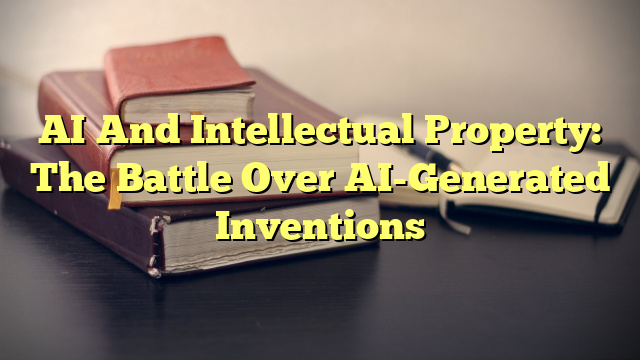Table of Contents
Introduction
Artificial Intelligence (AI) has become a powerful tool in various industries, revolutionizing the way we work and live. However, with the rise of AI-generated inventions, the battle over intellectual property rights has intensified.
The Impact of AI on Intellectual Property
AI has significantly impacted intellectual property by challenging traditional notions of authorship and invention. With AI’s ability to generate original works, questions arise regarding who should be credited as the creator and who owns the rights to these AI-generated inventions.
AI can autonomously create music, art, and even write articles, blurring the lines between human and machine creativity. This raises concerns about the protection and ownership of these AI-generated creations.
Is AI a Threat to Intellectual Property?
While AI poses challenges to intellectual property, it can also be seen as an opportunity. AI can assist in identifying and protecting intellectual property rights by analyzing vast amounts of data and detecting potential infringements.
However, AI can also be misused to infringe on intellectual property rights. For example, AI algorithms can be trained to generate counterfeit products or create content that infringes copyright laws.
Can AI Have Intellectual Property Rights?
The question of whether AI can have intellectual property rights is a complex one. Currently, most legal systems recognize intellectual property rights for human creators. However, as AI becomes more advanced, there is a growing debate about granting AI its own intellectual property rights.
Some argue that AI should be recognized as a legal person and be granted intellectual property rights. Others believe that AI should be considered a tool or a creation of humans, and the rights should be attributed to the human creators or owners of the AI.
Who Owns AI Intellectual Property?
The ownership of AI intellectual property is another contentious issue. In some cases, the AI-generated inventions may be owned by the individuals or organizations that developed or trained the AI. However, determining ownership can be challenging when multiple parties are involved in the creation and development of AI.
Legal frameworks and agreements need to be established to address the ownership of AI intellectual property. These frameworks should consider the contributions of both humans and AI in the creation process and ensure fair distribution of rights and benefits.
Conclusion
The battle over AI-generated inventions and intellectual property rights is complex and evolving. As AI continues to advance, legal systems and frameworks need to adapt to address the challenges and opportunities presented by AI.
Clear guidelines and regulations are necessary to protect the rights of creators, encourage innovation, and ensure fair distribution of benefits in the age of AI.
References
Insert your references here.

